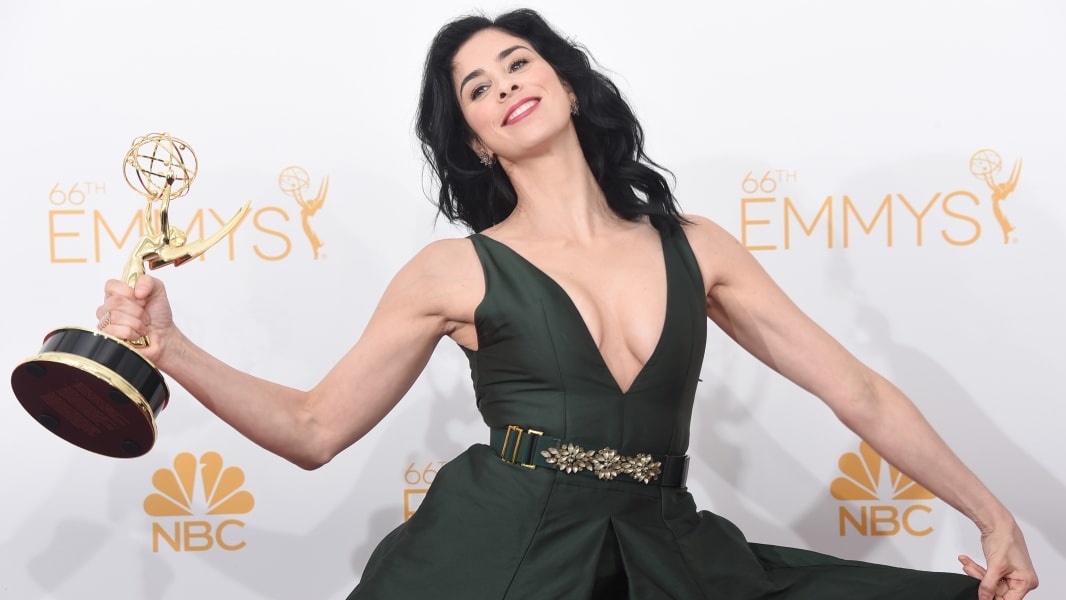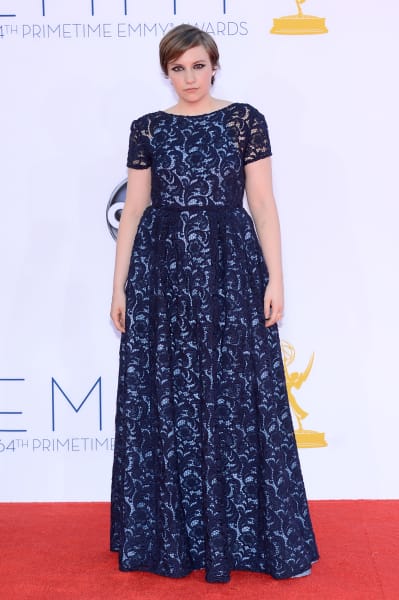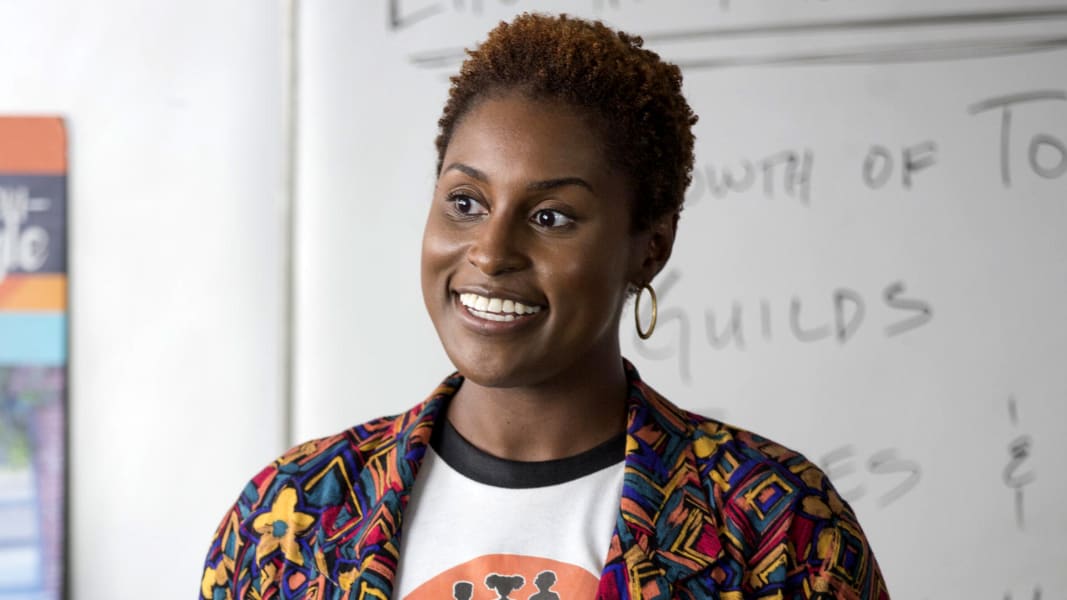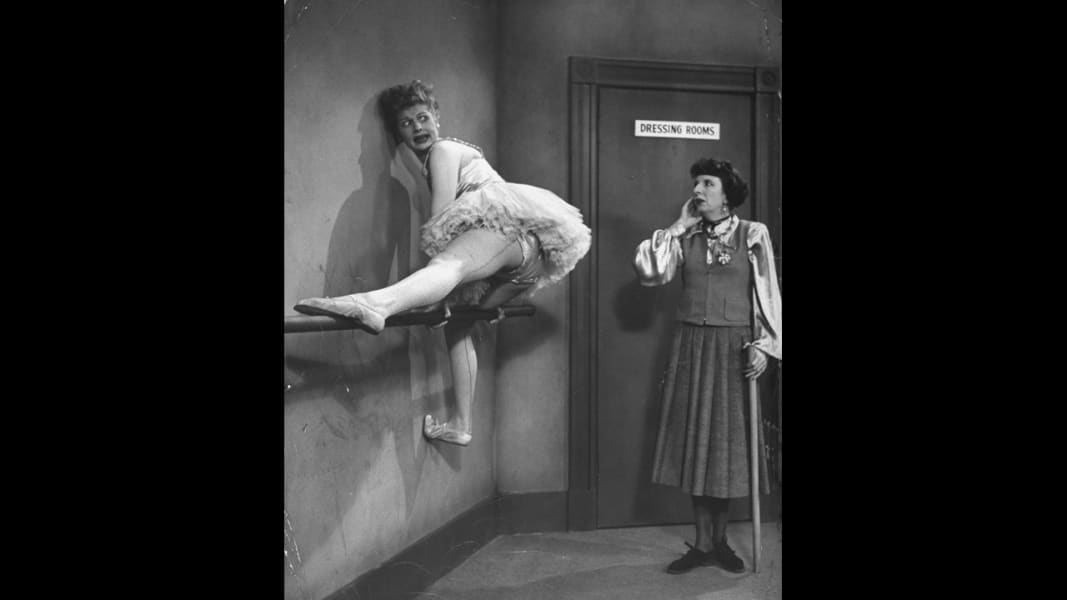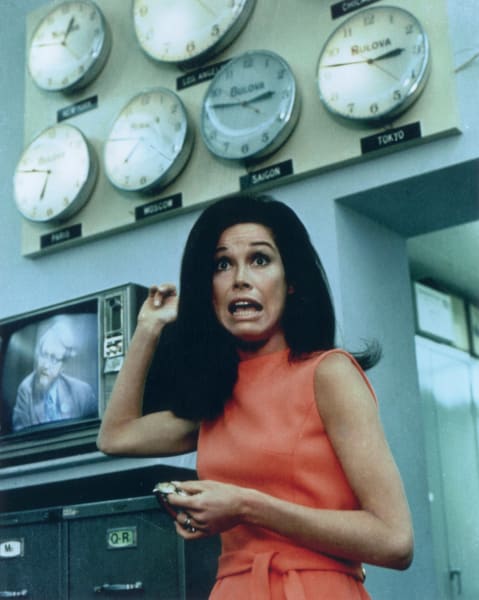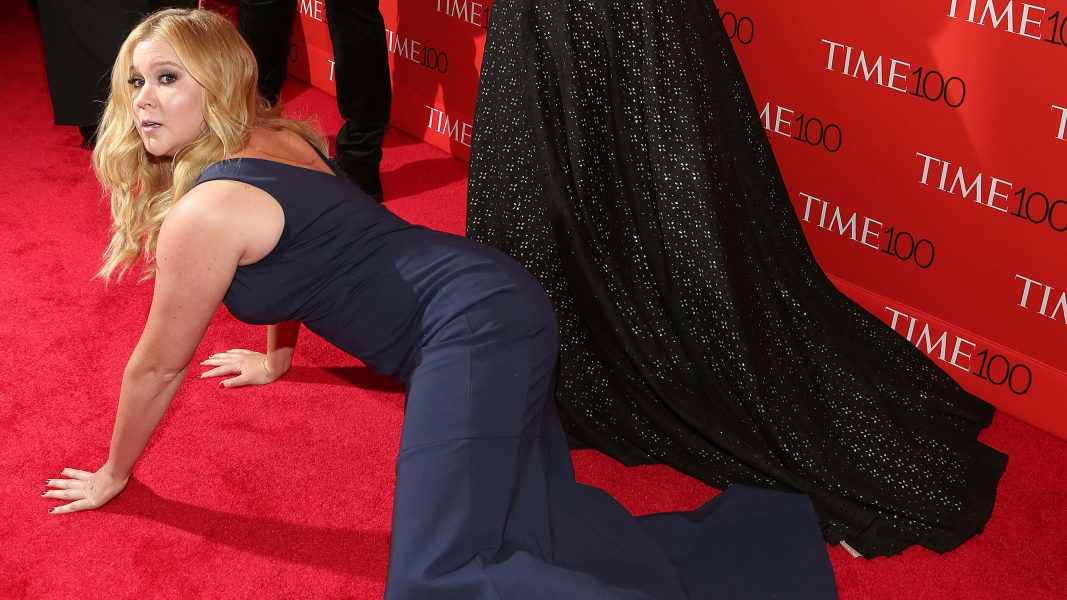Share
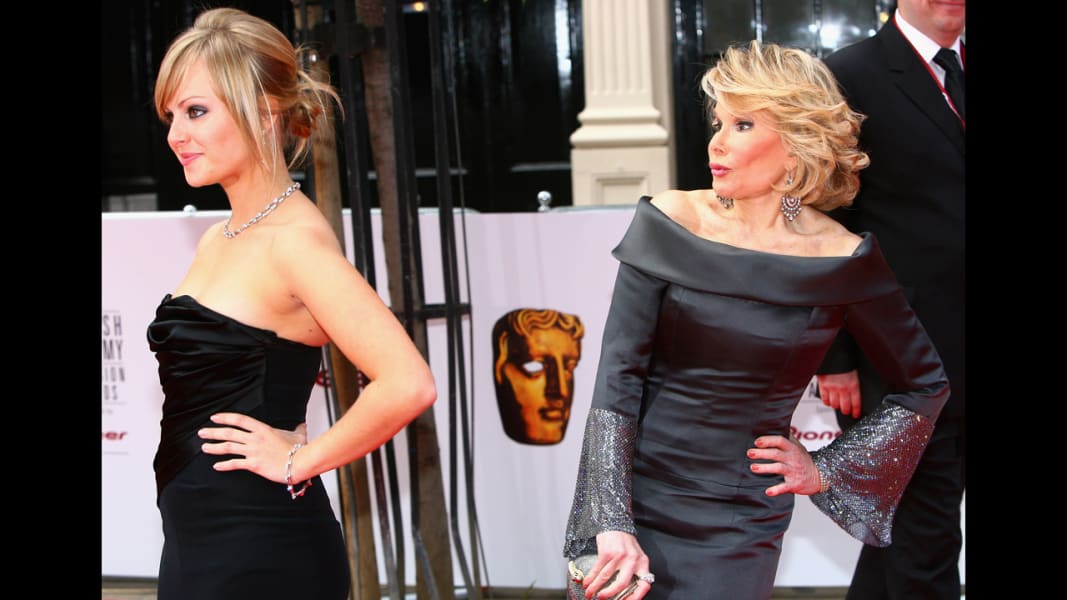

1 of 26
To be a pioneer, you have to be willing to go where others haven't, or simply won't. In the case of Joan Rivers, seen here to the right of Brit actress Tina O'Brien, she was willing to say what nobody else would. Her stand-up was uninhibited from the start, and her wisecracks soon led her to late night in 1965. By 1986, Rivers became the first woman to host her own late-night talk show, helping to pave the way for a new generation of funny women. Here are 29 others who've done the same. Chris Jackson/Getty Images
Lucille Ball had already found success as a model and actress by the time "I Love Lucy" arrived in 1951, but the show's creation left a lasting mark on pop culture. Ball and husband Desi Arnaz founded their own production company and then created a sitcom that brought in history-making profits. What she produced set the scene for comedies like it to come and served as inspiration for other actresses to reap the benefits of their work. Loomis Dean/The LIFE Picture Collection/Getty Images
Mary Tyler Moore did more than make us laugh throughout her career; she broke ground in the 1970s by portraying a single, 30-something working woman. That's all TV comedies were about in the '90s and 2000s, but at the dawn of the '70s, "The Mary Tyler Moore Show" was an entirely new breed. If the "Girls" of today are going to raise their drinks to anyone, it should be in celebration of Moore. CBS Photo Archive/CBS/Getty Images
Before "Saturday Night Live," there was the comedic duo Nichols & May. Elaine May and Mike Nichols were renowned for both their social satire and their incredible improv ability, which they often brought right into American homes via programs like "The Jack Paar Show." Along with Nichols, May honed her talent at Chicago's Compass Players, the troupe that would later evolve into Second City. NBC/NBCU Photo Bank/Getty Images
Considering the early trials Jackie "Moms" Mabley had to overcome, her enduring and groundbreaking career in comedy is all the more impressive. After starting off in vaudeville in 1920s New York, she expanded to the silver screen and became the first female comedian to perform at the Apollo Theater. Before Phyllis Diller put on her fright wig and sack dress, Mabley was making audiences double over with her bawdy sense of humor that included frank talk about race. Mabley's talent wasn't widely recognized until the '60s; she died in 1975. John D. Kisch/Separate Cinema Archive/Getty Images/File
Can your favorite TV series claim a run of 11 years, with an average of 30 million people tuning in every week? "The Carol Burnett Show" can. The variety show is considered by Time magazine to be one of the 100 best TV shows ever, although when it aired in 1967, Burnett was just trying to bring together all her gifts -- for comedy, acting and song -- into one entertaining dish. The result was a TV classic. CBS /Landov
In 1975, "Saturday Night Live" debuted and introduced viewers to history-making comedians like Gilda Radner, left, and Jane Curtin, who were part of the original "SNL" cast. The duo put in place some of the most iconic sketches to date, from the Coneheads to Baba Wawa. Post-"SNL," both were poised for screen success, but Radner's career was cut short by her death in 1986. Curtin went on to star in sitcoms like "Kate & Allie" and "3rd Rock from the Sun." NBC/NBCU Photo Bank/Getty Images
Comedic actresses like Zooey Deschanel aren't exaggerating when they say they owe their careers to the great Phyllis Diller. She got her start in stand-up in the mid-'50s and could be considered one of the funniest members of the women's lib movement, breaking the housewife free from the home and giving her a full voice on stage. "She paved the way for everybody," talent agent Fred Wostbrock said on Diller's death in 2012. Hulton Archive/Getty Images
When Elayne Boosler arrived on the stage in the '80s, it seemed she'd been sworn in to tell the whole truth and nothing but the truth. With a crystal-clear voice and a rapid-fire delivery, Boosler was an eviscerating cultural and political commentator who knew how to land a joke. Condoms, crime, Republicans -- you could get all of that and more in one sitting. In 1985, she pulled her own funds together to craft "Party of One," making her the first woman to get her own hour-long TV comedy special. Hulton Archive/Getty Images
Bea Arthur, right, was in her 50s when she starred in the '70s sitcom "Maude." The groundbreaking show eagerly charged into new territory, including a pivotal episode in which Maude decides to have an abortion. Between that comedy, and what followed with Arthur's Dorothy Zbornak on "The Golden Girls," Arthur's death in 2009 was deeply felt. In Arthur's absence, her "Golden Girls" co-star Betty White has pushed forward, becoming the rare woman in entertainment who's successfully working well into her 90s. Kevin Winter/Getty Images for TV Land
Some comics make the mistake of equating vulgarity with humor, but Rita Rudner is one of the prime examples that clean can also be funny. Born in Miami, Rudner moved to New York as a teen initially to work as a dancer but then moved over to comedy in her mid 20s. By 1990, when she produced her second TV comedy special, "Born to Be Mild," there was no denying Rudner had earned her place in comedy's canon -- and she didn't have to curse anyone out to do it. MGM/IMDB
Lily Tomlin's status as a comedic legend hasn't budged a bit. It all started with 1969's "Laugh-In," in which Tomlin gave us characters like the semi-creepy 6-year-old Edith Ann and the snippy phone operator Ernestine. Tomlin has done tons -- and won plenty of accolades for it, from the Emmys to the Tonys -- but we'll always have a special place in our heart for her 1980 workplace comedy, "Nine to Five." CBS/Landov
Wanda Sykes initially took a detour into government work before she found her voice in comedy. Sticking to her ethos of authenticity, Sykes has earned respect and admiration from comedians and the public alike for comedy that always features her distinctive point of view. While also being an accomplished writer (she's worked on quips for her own sitcoms and series like "The Chris Rock Show") and an actor (nod to "Curb Your Enthusiasm"), Sykes is also a stand-up natural. In 2009, she became the first openly gay comedian and the first African American woman to host the White House Correspondents' Dinner. Jamie McCarthy/Getty Images for The Trevor Project
Julia Louis-Dreyfus got her start on "Saturday Night Live," but it's her role as the sole lead female character on the iconic '90s comedy "Seinfeld" that stands out the most. Initially, Louis-Dreyfus' Elaine didn't exist, but it was decided that the show needed a woman's voice. "We had a very vague idea of Elaine," "Seinfeld" co-creator Jerry Seinfeld told The New York Times in 1993. "But once Julia walked in, we knew who Elaine was. We created her together." Louis-Dreyfus has since been in other hits, including HBO's "Veep." Monty Brinton/NBC/NBCU Photo Bank via Getty Images
Native New Yorker Whoopi Goldberg got her start on the opposite coast. With her young daughter in tow, Goldberg headed for San Francisco in the '70s, where she joined an improv group and conducted an award-winning one-woman show. In the mid-'80s, Goldberg returned to New York, where she created the incisive Broadway production "The Spook Show." The beauty of Goldberg's humor about American life is in its insight, a quality she also brought to the screen in a number of acting roles. Not limited to comedy, Goldberg is a member of the prestigious EGOT club, meaning she's won an Emmy, a Grammy, an Oscar and a Tony. JOHN MOTTERN/AFP/Getty Images
Right from the beginning, Ellen DeGeneres had a way of taking the realities of life and filtering them through a snappy sense of humor. DeGeneres was bubbly and warm, and her brand of accessible comedy was a perfect fit for network television. It was there, while starring on her '90s sitcom "Ellen," that DeGeneres made a pioneering move: She became the first lead on a sitcom to come out as gay. Kevin Winter/Getty Images
Comedy has always been a tool for the politically frustrated and socially conscious, but few have wielded their humor like Margaret Cho. After a difficult childhood, Cho began performing as a stand-up comedian when she was just 16. By her 20s, her work had led to appearances on Arsenio Hall's late-night show and a sitcom of her own: ABC's short-lived "All-American Girl." That series didn't pan out, but the rough patch that followed only made Cho sharper and more insistent on keeping her perspective as a woman, and a Korean-American, intact. When she returned with the powerful one-woman show "I'm the One That I Want" in 1999, she'd established her voice as one of the most vital in the business, and she did it on her own terms. SEBASTIEN NOGIER/AFP/Getty Images
For some of you, the '90s is nothing without the image of a brunette Janeane Garofalo in specs and Doc Martens, sardonically commenting on the culture of the day. Although Garofalo began her stand-up career in the late '80s, it felt like she was born to wryly carry us through the decade that followed. With credits that include "The Ben Stiller Show," "Reality Bites," "The Larry Sanders Show" and "Saturday Night Live," Garofalo's comedy helped define a generation. Monica Schipper/Getty Images
There are only three women who have won Grammy awards for solo comedy albums, and Kathy Griffin is one of them. (She's in great company; the other two are Whoopi Goldberg and Lily Tomlin.) From the stage to the screen, Griffin's voice has become one of the most recognizable of the past two decades. She has been adaptable in a changing industry, shifting from sitcom to reality TV with her award-winning "My Life on the D-List," and unapologetic about her sense of humor and her activism. Rachel Murray/Getty Images
Chelsea Handler may have wanted to be an actress when she was younger, but we can't imagine this outsized personality pretending to be anyone else. Raunchy, outspoken and completely unbothered by others' opinions, Handler started out in stand-up but soon became appointment viewing during the notoriously male-dominated late night TV bloc with E!'s "Chelsea Lately." These days you'll find Handler on Netflix with the series "Chelsea." Kevin Winter/Getty Images
Despite starting off with two incredibly funny women, "Saturday Night Live" has had its problems with cast diversity. But starting in the mid-'90s and leading right on up through the aughts, "SNL" was on fire. Thanks to creative minds like Tina Fey, left, and Amy Poehler, as well as Molly Shannon, Ana Gasteyer, Rachel Dratch, Maya Rudolph and Kristen Wiig, this was an era when "SNL" was not to be missed. You want to talk about groundbreaking? See the work that Fey and Poehler pulled off during the 2008 presidential campaign; those clips are going in the vault for future generations. Handout/Getty Images
In August 2012, Tig Notaro did something that redefined what it means to be a woman in comedy. She took the stage at the Largo in Los Angeles for a stand-up set and opened with, "Good evening. Hello. I have cancer." Notaro had just been diagnosed with stage 2 cancer in both breasts, and, as she described to The New Yorker, "It felt so silly and irrelevant to think about ... observational jokes ... in light of what was going on with me." So instead, she turned her 30 minute set into a revolutionary performance on illness, pain and the human will -- showing in the process that sometimes the best comedy isn't the kind that makes you laugh, but connects you with others. David Buchan/Getty Images
Known for her smart, raunchy, no-holds-barred comedy, Amy Schumer is one of the newest reigning queens of American humor. After creating the popular Comedy Central series "Inside Amy Schumer," the blockbuster success "Trainwreck" and the best-seller "The Girl with the Lower Back Tattoo," in 2016 Schumer became the first woman to ever make Forbes' highest-paid comedians list. Taylor Hill/Getty Images
The only thing guaranteed when Sarah Silverman does stand-up is that something outlandish, and probably offensive, will come flying out of her mouth. Silverman honed her talent in the writers' room of "Saturday Night Live" in the early '90s before landing some on-camera work of her own. Roles in movies like "Bulworth" and "There's Something About Mary" helped increase her visibility, but it was her 2005 one-woman show, "Jesus Is Magic," that cemented her place as a force to be reckoned with. Jason Merritt/Getty Images
If you're a casual observer of culture, you may mistake Lena Dunham as just the "Girls" star who seems to frequently -- and controversially -- find herself apologizing for verbal misfires. But Dunham's daring approach to authenticity is exactly what makes her groundbreaking. Her commitment to honest, unflinching truth and the humor that can be found there has most readily been seen in "Girls," the HBO series that Dunham created, co-produced and starred in that's ending its run this year. "Lena's unique lack of vanity or shame allows us to consider that we may also be able to accept and express ourselves fully," actress Claire Danes wrote of Dunham in Time magazine. "This is not only impressive, it's important." Getty Images
Comedy is the calling card of the unconventional, and few have broken the mold like rising comedic talent Issa Rae. The 32-year-old artist got her start by bringing to the forefront an underrepresented character in comedy: the "Awkward Black Girl," whose "Misadventures" Rae chronicled in web series before she developed the lauded HBO comedy "Insecure." With her Web series, new TV show, and memoir, New York Magazine observed, Rae has offered a sort of "mission statement: to depict black women as imperfect subjects, worthy of fascination, with precise, observational humor." HBO
